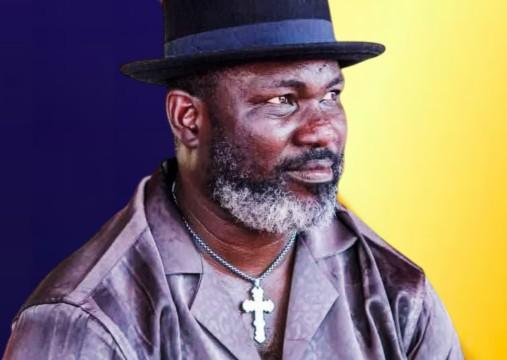The Mindset of a Real Entrepreneur By Abai Francis

According to Wikipedia, an entrepreneur is described as "someone who has the capacity and willingness to develop, organize and manage a business venture along with any of its risks in order to make a profit."
But the word ‘entrepreneur’ should not only be limited to ‘business venture’ for the purpose of profit; rather, the term could also be exported to other disciplines or areas of human endeavours with the aim of applying the tenets of entrepreneurship for success. With that, let me introduce to you the "Real Entrepreneur” who is someone that engages in every aspect of human endeavours with an entrepreneurial mindset.
Unlike in business, profit to a real entrepreneur is not only limited to financial profit but to social, economic, religious and cultural profit. But for these to be achieved means developing an entrepreneurial mindset. For the real entrepreneur, where the average man sees problems/challenges, he sees solutions/opportunities; where there is fear to tread, the real entrepreneur mounts with not only confidence but with a zeal to conquer. And when he fails, he sees it as a motivation; when he succeeds, it is merely a call to do more, not less.
And so, for the real entrepreneur: to eat, to think, and to sleep, is business. All of his daily encounters, whether they are simple or complex tasks, social or cultural activities, formal or informal, are all engaged in with an entrepreneurial mindset. His pattern of reasoning is way beyond the mindset of the average man. Wherever he finds himself, he's guided by such principles.
In the family front, the real entrepreneur knows that his family (wife/husband and children) are either assets that would contribute positively to his success, or as liabilities that would crumble it. He knows that, as a fore runner that has passed through many hurdles in life, it is his responsibility to help mould and guide his family (whom he sees as work-in-progress) into becoming better and responsible citizens in the society. He uses the raw materials of discipline, sound godly principles, good family ethics, and the foundation of formal and informal education, all combined together, as tools to model his family to become products of value, now and in the future. He helps his family members to keep in focus this primary objective because he knows that their failures would be his failure, and their successes, his success. In all, the family entrepreneur ensures that his family members become assets (and not liabilities) to not only himself but to the society as well.
In the business front, what the real entrepreneur aims for is not just earning financial profit from his business engagements; rather, he focuses on modeling a positive reputation or a brand name that would outlive his existence. In business, the entrepreneur not only develop and produce a product (goods and services) that satisfies current as well as future needs and wants, he is also interested in breaking into new grounds for better innovative products that surpasses current ones. He wants to leave behind a lasting legacy that would not only benefit himself and his family but the entire world. In all, the business entrepreneur find ways of identifying what people need, and then look for less costly ways to satisfy these needs. He knows that it is only when customers are happy and satisfied with his products that profit will be earned, but not before.
In the economic front, the real entrepreneur seeks to create jobs rather than look for jobs, as well as utilise economic resources (human and nonhuman) efficiently for maximum returns. Because he knows that the more people are engaged in a job, the more money will be available for them to spend on his product(s), he strives to keep the rate of unemployment in the economy, low. And so, the only job he looks out for is to find and recruit skilled and qualified personnel to help him sail his ship (business) into deep waters so as to discover a new product of need. But knowing he lacks the power to swing the rate of unemployment to his favour at all times, he strategises innovatively on ways to gain a larger share of the market by crashing inflated prices of products (not raise them) in order to increase patronage for his products. Thus, while other players in the economy are seeking ways to influence the laws of money, inflation, demand and supply, etc. for higher profits, he chooses to use them positively to his advantage and for the good of the economy. In all, the economic entrepreneur is poised to avert economic recession by bringing his understanding of economic laws into ensuring a vibrant economy that would aid investments, growth and development.
In the political front, the real entrepreneur sees his political office as a fiduciary one with a duty to first serve, and not to be served. With this mindset he prioritises the needs of the people in his constituency by delivering the dividends of democracy to them before anything else, as a by-product of his people-oriented leadership role so as to win their allied support. To him, the masses are his customers; gpdfathers are investors seeking high returns; and oppositions are competitors seeking relevance. These varying interest groups with their opposing views form part of the citizens that are yearning for a social contract. And knowing that in politics there is no permanent friend or enemy, he seeks for ways to build bridges of peace and to carry all along so as to win everyone's tacit support, including those of his rivals, where possible. This he does knowing that he is never an Island, and that he will need to tap into other people’s ideologies for the benefit of all citizens. In all, the political entrepreneur uses his public office as a tool to seek and to win the heart of the majority in his constituency for long term future gains which he gladly sacrifices in the short term.
In the religious front, the real entrepreneur knows that his allegiance lies first with his Maker (the Almighty God) and not with men, prompting his decisions and actions to be so guided by the fear of God. He does not steal from the poor in the name of collecting tithes, sacrifices and offerings to enrich himself and his families. Instead, he uses the wealth of the church to empower the children of the poor and needy with free education, to support the elderly with free healthcare, and to empower the youths by creating opportunities for them to develop and engage themselves. The religious entrepreneur doesn't use his spiritual position to patronize politicians, government officials, and the rich in high places; rather he stands on the side of truth to propagate the message of repentance, of free giving, of shunning corrupt practices, etc. as against the message of materialistic riches which oftentimes deviate the focus of many religious adherents to lean unto earthly gains to the detriment of spiritual gains. In all, the religious entrepreneur strives to populate the Kingdom of God with righteous souls of men as well as help keep them in check from falling or faltering.
In the social front, the real entrepreneur is a friend to all. He never uses his wealth to hound the poor or to oppress them. He never uses his business position to cheat others or to stop them from pursuing their business dreams. He extends a hand of collaboration for the benefit of all because he knows that no condition is forever permanent and that it is more safe to stand with others than to stand alone. With this social mindset, he strives to encourage the less privilege in the society through donations and engaging in other charitable works to help ease their social plights. The social entrepreneur chooses to play the role of a philanthropist as well as a Justice of the Peace, making himself a role model for all in the society to emulate. In all, the social entrepreneur may not be rich or influential, but his passion to put the needs of humanity first is one of the hall marks he showcases in his bid to make the world a better place for all.
In the financial front, the real entrepreneur is a financial investor who sees money as a resourceful tool. Unlike the extravagant spender, money doesn’t wield its undue influence on the financial entrepreneur because he doesn't attach much significance to money other than it is an investment vehicle. In other words, for the financial entrepreneur, it is not holding money that matters but what money could do for him that counts. He sees money as a seedling that needs to be sown if it must grow and bear fruits. With this mindset, he prefers to invest money rather than to save or spend it recklessly. He is guided by the two basic principles of: ‘money doesn’t grow on trees’ and ‘you need money to make more money’. And before he invests, he already knows where to draw the line between assets and liabilities as well as between revenues and expenses. In all, the financial entrepreneur sees money as an investment vehicle that must be carefully navigated in the direction of returns.
In one way or the other, we all engage in all or some of the above mentioned activities. This means that if we must succeed in our endeavours we should not only focus our entrepreneurial mindset on just one front but be a real entrepreneur across all fronts. This does not in any way infer that one must be a genius, guru or wizard; far from it. Rather, it is simply imbibing in us the desire to do the little things that matters most and shunning those things that don’t matter. And so, being a real entrepreneur makes it easy for one to succeed and not fail in his/her endeavours in life. In fact, the absence of possessing an entrepreneur mindset is what contributes to the high rate of poverty and violence in our society as most people lack the ingredients that are needed for them to manage their family, business, economic, political, religious, social, financial and other fronts.
#penglobaldiscourse



